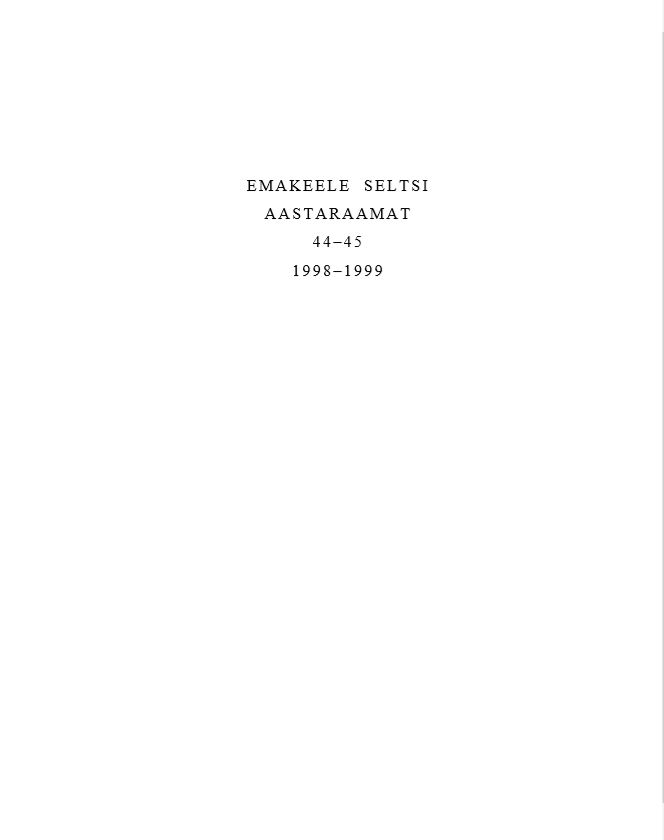Võhik
Est. võhik ‘layman’
Author(s): Maie KaldaSubject(s): Language and Literature Studies
Published by: Teaduste Akadeemia Kirjastus
Keywords: Etymology ; layman
Summary/Abstract: No reference books leave Heinrich Stahls collection of sermons ‘Leyen Spiegel/ Darinnen kürtzlich gezeiget wird/ wie ein einfaltiger Christ…’ (1641–1649) without mention. In present-day German the orthography of the word Leie has changed and the meaning is, according to Wahrig: ‘1 Jmd, der von einem (bestimmten) Fach nichts versteht, Nichtfachmann 2 jmd, der kein Geistlicher ist’ (Wahrig 1994). The 1975 German-Estonian dictionary gives the same two definitions, but in the reverse order. Estonian has a separate word (võhik) for both definitions, which makes it harder to find an acceptable translation for ‘Leyen Spiegel’. The present article surveys the use and fixation of the Estonian equivalent of Laie. The first use of the word võhik that the present author has been able to find is in an article by Hindrik Prants in the periodical ‘Eesti Kirjandus’ from 1909. According to Alo Raun (1982) the word võhik is a neologism created by J. V. Veski. My attempts to find out where and when Veski first used this word have so far been without result.
Journal: Emakeele Seltsi aastaraamat
- Issue Year: 1999
- Issue No: 44-45
- Page Range: 042-049
- Page Count: 7
- Language: Estonian

